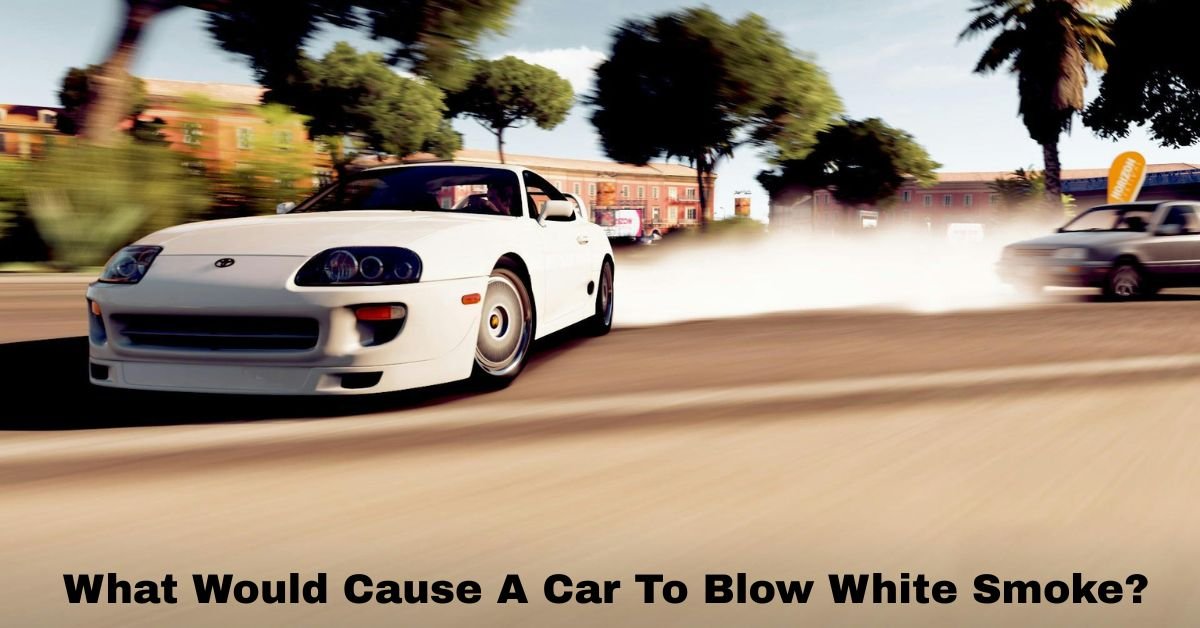It can be alarming to see white smoke pouring from your car’s exhaust. It often signals that something isn’t quite right with your engine, and ignoring it could lead to expensive repairs down the line. While a puff of white vapor on a cold morning might be perfectly normal, continuous white smoke is usually a sign of a deeper issue.
In this blog post, we’ll dive into the most common reasons a car blows white smoke, how to tell if it’s serious, and what you should do next.
What Would Cause a Car to Blow White Smoke?
1. Condensation (Normal for Cold Starts)
Before you panic, consider the conditions. If you see white smoke on a cold morning that disappears after a few minutes, you’re likely just seeing water vapor. This happens when moisture in the exhaust system evaporates as the engine warms up. There is nothing to be concerned about; it is very natural.
However, if the smoke lingers or comes out in thick clouds, especially after the engine is warm, it could be a sign of a more serious problem.
2. Coolant Leak into the Combustion Chamber (Blown Head Gasket)
One of the most common causes of persistent white smoke is coolant leaking into the combustion chamber. This usually happens when there’s a blown head gasket, a cracked cylinder head, or a warped engine block. When coolant enters the engine’s cylinders and burns along with the air/fuel mixture, it creates white smoke.
Signs of this issue include:
- Sweet smell from the exhaust
- Engine overheating
- Low coolant levels
- milky residue in the oil or beneath the oil cap
To prevent significant engine damage, a blown head gasket is a critical issue that must be fixed right away.
3. Cracked Engine Block or Cylinder Head
If your engine block or cylinder head has cracked due to overheating or age, coolant can seep into places it shouldn’t—like the combustion chamber. This not only produces white smoke but can also lead to loss of engine power and severe internal damage. These repairs are more intensive and expensive than a head gasket replacement but are sometimes unavoidable if damage is extensive.
4. Fuel System Issues in Diesel Engines
If you drive a diesel car, white smoke can sometimes mean there’s unburned fuel exiting the exhaust. This can be caused by issues like:
- Faulty fuel injectors
- Low compression
- Timing problems
In diesel engines, white smoke that smells like diesel and is more persistent could be due to these fuel delivery problems. Diagnosing and repairing this often requires professional tools and expertise.
Must Read: What Are Heat Shields On A Car?

5. Transmission Fluid Leak (in Automatic Vehicles)
In rare cases, a faulty vacuum modulator can allow transmission fluid to get sucked into the engine and burned. This will produce thick, white smoke and often comes with a noticeable drop in transmission fluid level. While not as common as coolant issues, it’s something to check if your car has an older automatic transmission setup.
6. Aftermarket Modifications or Engine Tuning
If you’ve recently installed performance mods or adjusted your engine tuning, white smoke might be a side effect of an overly rich air/fuel mixture, or unintended pressure imbalances. Always double-check with a tuning specialist to make sure everything is operating within safe limits.
What Should You Do?
If your car is blowing white smoke and it’s not just morning condensation, here’s what you should do:
- Check coolant levels: Low levels without visible leaks could mean it’s being burned internally.
- Inspect your oil: Milky oil could indicate coolant contamination.
- Pay attention to the fragrance: Burning coolant is typically indicated by a sweet smell.
- Get a professional inspection: Early diagnosis can save you from major repairs.
Final Thoughts
White smoke isn’t something to ignore. While it might be harmless vapor on a cold day, persistent or thick smoke typically points to an engine issue that needs attention. From blown head gaskets to cracked engine components, the sooner you get it diagnosed, the better your chances of avoiding costly repairs.
Got questions about what your car is doing? Drop a comment below or share your experience—your insight might help another driver down the road!
